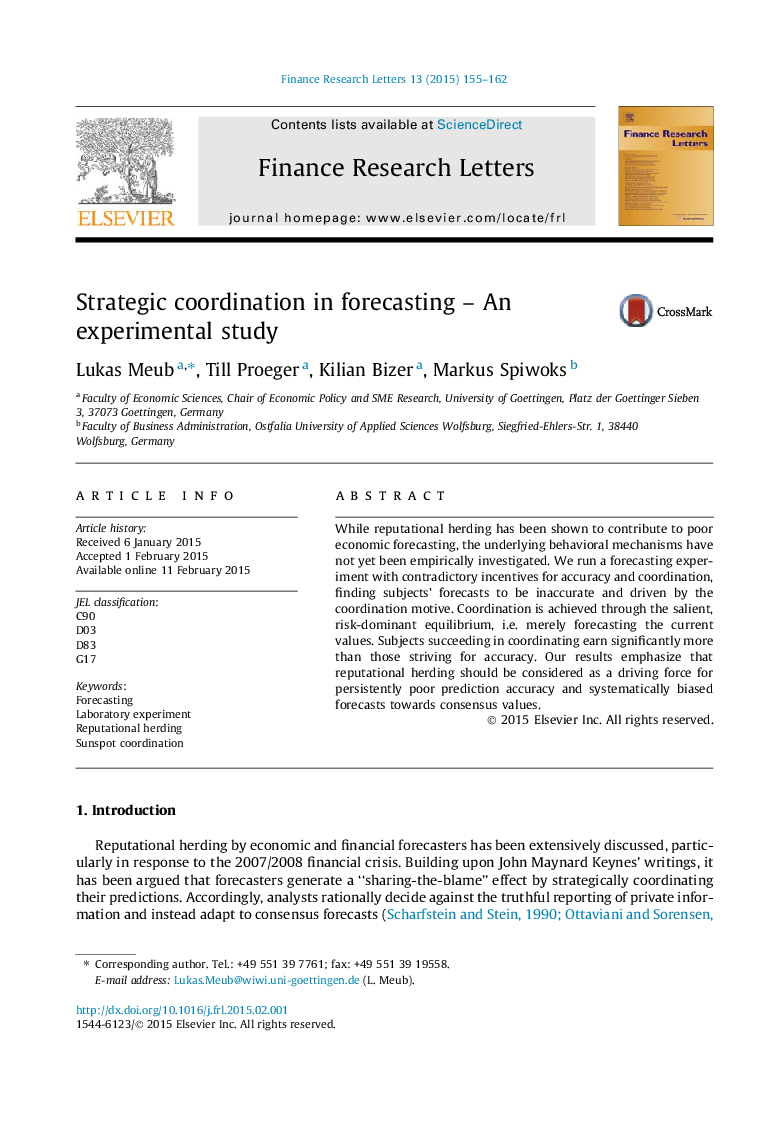| Article ID | Journal | Published Year | Pages | File Type |
|---|---|---|---|---|
| 5069581 | Finance Research Letters | 2015 | 8 Pages |
Abstract
While reputational herding has been shown to contribute to poor economic forecasting, the underlying behavioral mechanisms have not yet been empirically investigated. We run a forecasting experiment with contradictory incentives for accuracy and coordination, finding subjects' forecasts to be inaccurate and driven by the coordination motive. Coordination is achieved through the salient, risk-dominant equilibrium, i.e. merely forecasting the current values. Subjects succeeding in coordinating earn significantly more than those striving for accuracy. Our results emphasize that reputational herding should be considered as a driving force for persistently poor prediction accuracy and systematically biased forecasts towards consensus values.
Related Topics
Social Sciences and Humanities
Economics, Econometrics and Finance
Economics and Econometrics
Authors
Lukas Meub, Till Proeger, Kilian Bizer, Markus Spiwoks,
